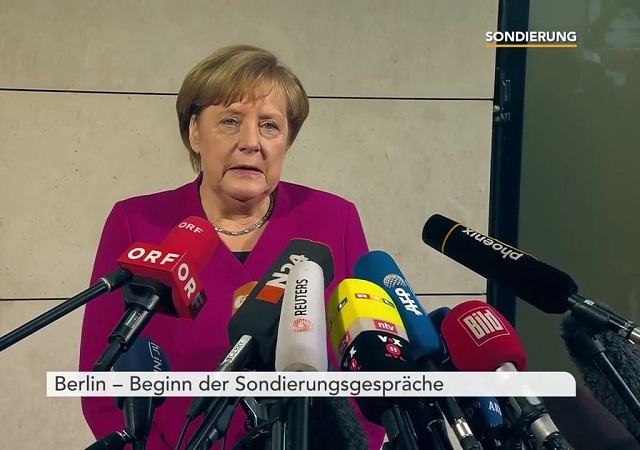Recordati And The M&A Landscape: Navigating Tariff Volatility In Italy

Table of Contents
Recordati's Position in the Italian Pharmaceutical Market
Market Share and Competitive Landscape
Recordati holds a significant position within the Italian pharmaceutical market, although precise market share data fluctuates. The company's strength lies in its specialized therapeutic areas, particularly in cardiovascular and central nervous system medications. Key competitors include larger multinational pharmaceutical companies and smaller, specialized Italian players.
- Market Share: While precise figures are not publicly available on a regular basis, Recordati consistently ranks among the top players in its specialized segments within Italy.
- Key Product Areas: Cardiovascular drugs, central nervous system medications, and other specialized therapeutic areas contribute significantly to Recordati's revenue.
- Competitive Advantages: Recordati differentiates itself through a focus on specialized therapeutic areas, robust R&D efforts, and strategic partnerships.
Recent M&A Activity
Recordati has a history of strategic acquisitions, aiming to expand its product portfolio and market presence. While specific details of past M&A transactions are not always publicly disclosed, these acquisitions have generally aimed to enhance market share within existing areas and to expand into promising new therapeutic segments.
- Successful Acquisitions: (Specific examples would need to be researched and added here, focusing on successful integrations and revenue boosts).
- Impact on Revenue and Market Share: Successful acquisitions have demonstrably increased Recordati's revenue and market share, solidifying its position within the competitive landscape.
Impact of Tariff Volatility on Recordati
Types of Tariffs Affecting the Pharmaceutical Industry in Italy
The Italian pharmaceutical industry is susceptible to various tariffs, including import duties on raw materials and finished products, and potential export taxes on products sold internationally. These tariffs directly impact drug pricing and profitability, influencing M&A strategies.
- Import Tariffs: Fluctuations in import tariffs on raw materials increase manufacturing costs.
- Export Tariffs: Tariffs imposed on exports can reduce the competitiveness of Recordati's products in international markets.
- Internal Regulatory Taxes: Internal regulatory taxes also affect the final pricing and availability of medications.
Strategies for Mitigating Tariff Risks
Recordati employs several strategies to mitigate the risks associated with tariff volatility. These strategies are crucial for maintaining profitability and competitiveness in the Italian and international pharmaceutical markets.
- Hedging Strategies: Financial instruments are likely utilized to hedge against future tariff increases.
- Diversification of Sourcing: Sourcing raw materials from multiple countries helps reduce reliance on single-source suppliers potentially affected by specific tariffs.
- Lobbying Efforts: Recordati, like other pharmaceutical companies, may engage in lobbying efforts to influence tariff policies.
M&A Strategies in a Volatile Tariff Environment
Attractive Acquisition Targets for Recordati
Recordati's future M&A activity will likely focus on companies that offer synergies and reduce its tariff vulnerability. Target companies may include smaller firms with specialized products or those geographically positioned to offer diversification benefits.
- Potential Acquisition Targets: (Specific examples of potential Italian pharmaceutical companies or those with products complementary to Recordati's portfolio should be researched and added here).
- Rationale for Acquisitions: Acquisitions are driven by expanding into new therapeutic areas, gaining access to novel technologies, and strengthening market position.
- Expected Synergies: Cost reduction, increased efficiency, and expanded distribution networks are sought-after synergies.
Due Diligence in a Tariff-Sensitive Market
In a tariff-sensitive market like Italy, due diligence becomes even more critical during M&A processes. A comprehensive assessment of tariff exposure is paramount.
- Regulatory Hurdles: Thorough examination of regulatory approvals and potential delays in obtaining necessary licenses.
- Tariff Exposure Analysis: Detailed analysis of the target company's reliance on imported materials or export markets, and how this might be affected by tariff changes.
Future Outlook and Predictions for Recordati's M&A Activity
Growth Opportunities and Challenges
Recordati's future growth depends on several factors, including its ability to navigate tariff volatility and competition. The company's success hinges on its innovation capabilities and strategic M&A activity.
- Growth Opportunities: Expansion into new therapeutic areas and international markets provides significant growth potential.
- Challenges: Increased generic competition and regulatory hurdles present significant challenges.
- Long-term Sustainability: Investing in R&D and developing innovative products are essential for long-term sustainability.
The Role of Innovation and R&D
Innovation and R&D play a vital role in Recordati's M&A strategy. Acquiring companies with strong R&D pipelines is crucial to sustaining competitiveness.
- Acquiring Innovative Technologies: Acquisition of companies holding promising new drugs or technologies reduces development timelines and increases market share.
- R&D Investment Strategy: Continued investment in R&D is critical for developing innovative products and mitigating the impact of generic competition.
Conclusion
Recordati's success in the Italian pharmaceutical market depends heavily on its ability to manage tariff volatility and execute effective M&A strategies. By carefully evaluating potential acquisitions, mitigating tariff risks, and investing in R&D, Recordati can maintain its competitiveness and achieve long-term growth. To learn more about the complexities of Recordati and the M&A landscape: navigating tariff volatility in Italy, further research into specific company financials and industry reports is recommended. Stay informed about the Italian pharmaceutical market to understand the implications of this strategic maneuvering.

Featured Posts
-
 Kentucky Derby Week Weather Churchill Downs Collaboration With Emergency Personnel
Apr 30, 2025
Kentucky Derby Week Weather Churchill Downs Collaboration With Emergency Personnel
Apr 30, 2025 -
 Germanys Spd Coalition Talks Amidst Youth Protests
Apr 30, 2025
Germanys Spd Coalition Talks Amidst Youth Protests
Apr 30, 2025 -
 Outdated Software Hindering Your Ai Strategy
Apr 30, 2025
Outdated Software Hindering Your Ai Strategy
Apr 30, 2025 -
 Chung Ket Giai Bong Da Sinh Vien Nhung Cu Sut Mo Man Soi Dong
Apr 30, 2025
Chung Ket Giai Bong Da Sinh Vien Nhung Cu Sut Mo Man Soi Dong
Apr 30, 2025 -
 Ubisoft Entertainment Et Le Document Amf Cp 2025 E1027692 Points Importants
Apr 30, 2025
Ubisoft Entertainment Et Le Document Amf Cp 2025 E1027692 Points Importants
Apr 30, 2025
